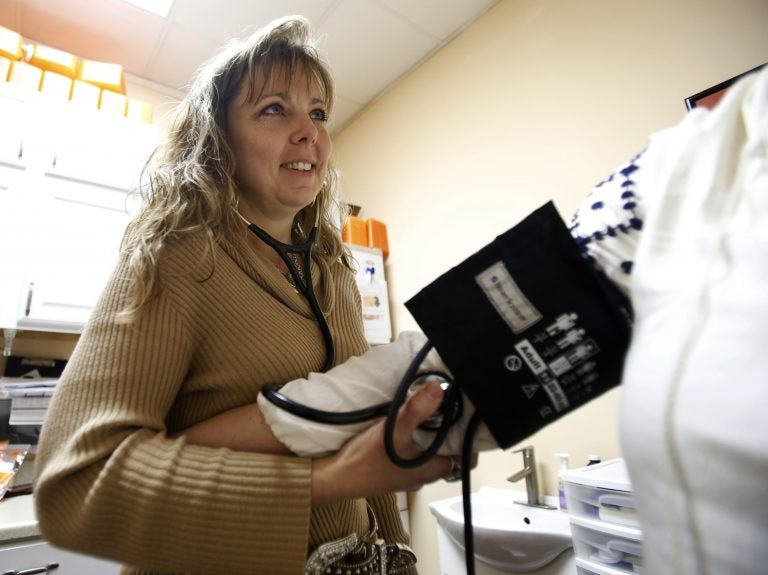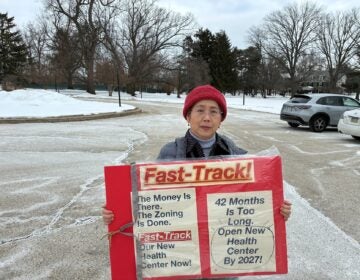Philly tries a different approach for training nurse practitioners
There's a shortage of primary care providers. University of Pennsylvania is testing a model, using Medicare funds, to train more nurse practitioners.

In this file photo, a nurse practitioner takes the blood pressure of a co-worker at a wellness center in Petersburg, Va., Thursday, Jan. 25, 2018. (Steve Helber/AP Photo)
University of Pennsylvania researchers are proposing a new model for training nurse practitioners, the graduate-level nurses who are increasingly the first point of contact for patients seeking primary care.
Nurse practitioners, like doctors, are usually trained in teaching hospitals. But they’re needed in all sorts of other settings: pharmacies, public clinics, small doctor’s offices, retail clinics, and urgent care centers.
“For example, students have never been in retail clinics before, while the public is going to retail clinics in large numbers,” said Linda Aiken of the University of Pennsylvania School of Nursing. “And retail clinics don’t, for the most part, belong to a health system, so there hasn’t really been any way to place health professionals in those settings.”
A new training model being tested in Philadelphia and several other sites around the country is placing students in these untapped health centers.
The model also addresses funding for these novel training programs through Medicare.
A well-resourced hub – in this case Penn – coordinates placement efforts for students from schools all over the region and takes care of the necessary follow-up required by Medicare. It can be difficult for smaller programs to handle such arrangements.
Medicare pays about $15 billion annually to train doctors. But, in a paper recently published in the New England Journal of Medicine, Aiken and her co-authors suggest the money would improve access to health care if more of it went to training nurse practitioners in this way.
Nurse practitioners weren’t so prevalent when Medicare was established in 1965, and training funds tend to flow to legacy training programs for doctors, few of whom are going into primary care today.
The model, authorized by the Affordable Care Act, has been functioning in Philadelphia for several years.
WHYY is your source for fact-based, in-depth journalism and information. As a nonprofit organization, we rely on financial support from readers like you. Please give today.



